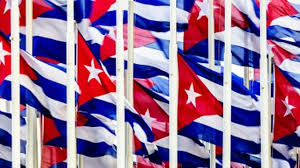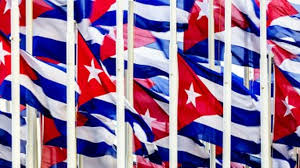
Private businesses will now be allowed to operate in most sectors of Cuba, said the government of the country on Saturday which marked the biggest reform in the country in years with respect to the state-controlled economy.
According to the daily Granma, the official newspaper of the ruling Communist Party, this opening up of the economy was unveiled last August by Labor Minister Marta Elena Feito and was approved by the Council of Ministers.
A handful of business sectors that were decided by the state were the only areas where private business activity was previously possible in the country. Under the reform measures, the number of industries opened to private businesses has now been increased from 127 to more than 2,000.
Industries considered strategic such as media, health and defence would now be the focus of the Cuban government, said reports quoting officials,
Small private businesses run by artisans, taxi drivers and tradesmen primarily used to make up the non-state sector of Cuba in addition to the hundreds of thousands of small farms.
Calls for the expansion of the role of small business in Cuba have been given for long to help take the economy forward and to create more jobs have been given for long by reform minded Cuban economists.
There has been very little growth in the Cuban economy for years and it contracted by 11 per cent last year because of a combination of the Covid-19 pandemic that severely hit the tourism industry of the country and the sanctions imposed on the country by the United States.
An international and local crisis was being faced by Cuba, President Miguel Diaz-Canel had said last year, and had said that the government would implement a slew of reformist measures to enhance exports, reduce imports and create demand domestically. There has been a scarcity of basic goods in Cuba for some time now and the people have been standing in lines to obtain the basic goods.
There was an easing in 2015 of more than 60 years of hostility between the US and Cuba with the then US president Barrack Obama and Cuban leader Raul Castro attempted to normalise relations between the two countries.
After the easing of relations, US citizens were allowed to visit Cuba and to empower local businesses.
But the successor of Obama, Donald Trump essentially scaled back the measures taken by Obama. Obama's historic opening was viewed as an appeasement of Castro's communist regime by hawkish Cuban-Americans.
However the current president of the US Joe Biden, who was the vice-president in Obama’s government, has expressed his interest to further normalize the relations with Cuba.
(Source:www.dw.com)
According to the daily Granma, the official newspaper of the ruling Communist Party, this opening up of the economy was unveiled last August by Labor Minister Marta Elena Feito and was approved by the Council of Ministers.
A handful of business sectors that were decided by the state were the only areas where private business activity was previously possible in the country. Under the reform measures, the number of industries opened to private businesses has now been increased from 127 to more than 2,000.
Industries considered strategic such as media, health and defence would now be the focus of the Cuban government, said reports quoting officials,
Small private businesses run by artisans, taxi drivers and tradesmen primarily used to make up the non-state sector of Cuba in addition to the hundreds of thousands of small farms.
Calls for the expansion of the role of small business in Cuba have been given for long to help take the economy forward and to create more jobs have been given for long by reform minded Cuban economists.
There has been very little growth in the Cuban economy for years and it contracted by 11 per cent last year because of a combination of the Covid-19 pandemic that severely hit the tourism industry of the country and the sanctions imposed on the country by the United States.
An international and local crisis was being faced by Cuba, President Miguel Diaz-Canel had said last year, and had said that the government would implement a slew of reformist measures to enhance exports, reduce imports and create demand domestically. There has been a scarcity of basic goods in Cuba for some time now and the people have been standing in lines to obtain the basic goods.
There was an easing in 2015 of more than 60 years of hostility between the US and Cuba with the then US president Barrack Obama and Cuban leader Raul Castro attempted to normalise relations between the two countries.
After the easing of relations, US citizens were allowed to visit Cuba and to empower local businesses.
But the successor of Obama, Donald Trump essentially scaled back the measures taken by Obama. Obama's historic opening was viewed as an appeasement of Castro's communist regime by hawkish Cuban-Americans.
However the current president of the US Joe Biden, who was the vice-president in Obama’s government, has expressed his interest to further normalize the relations with Cuba.
(Source:www.dw.com)





